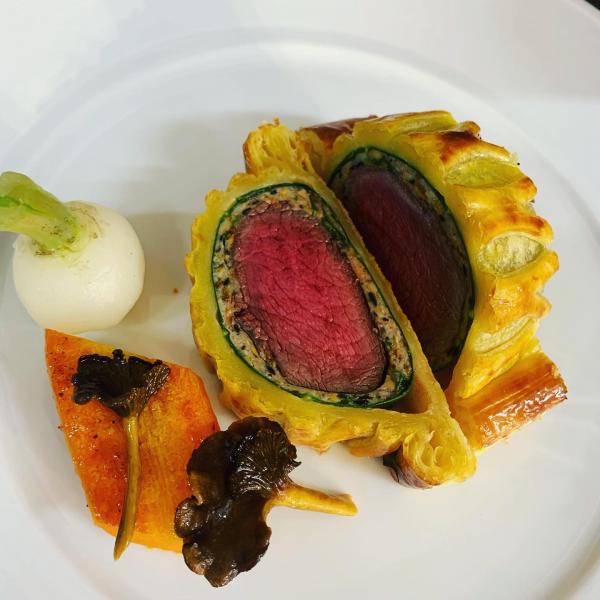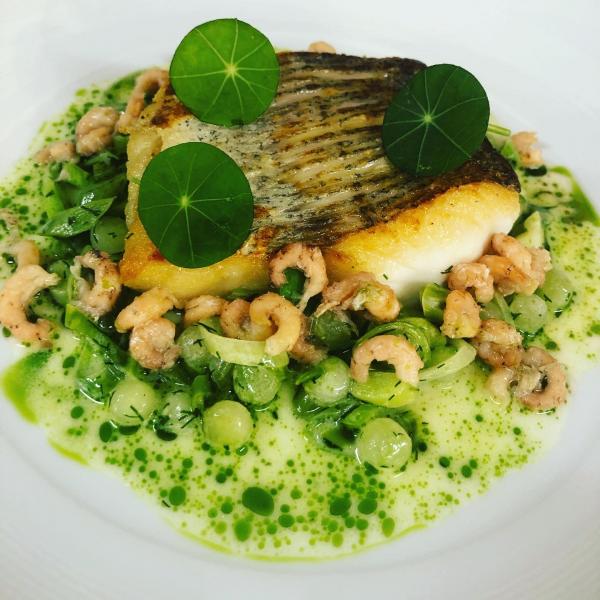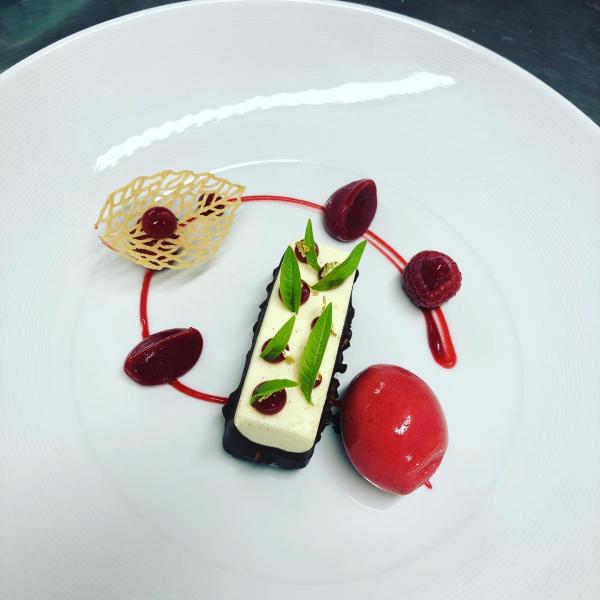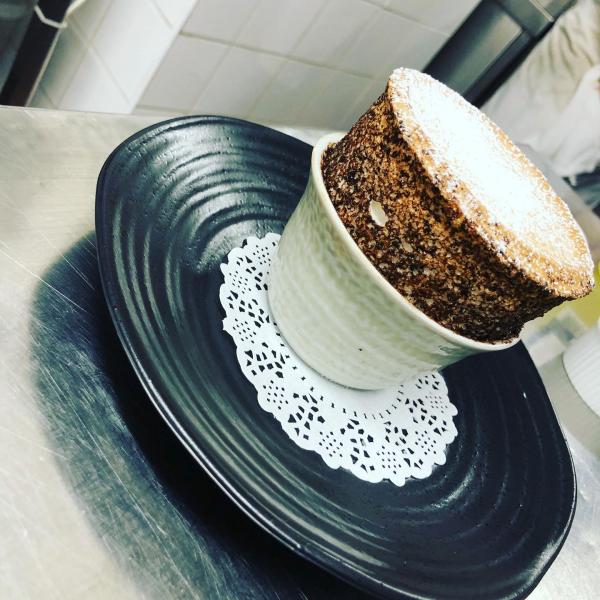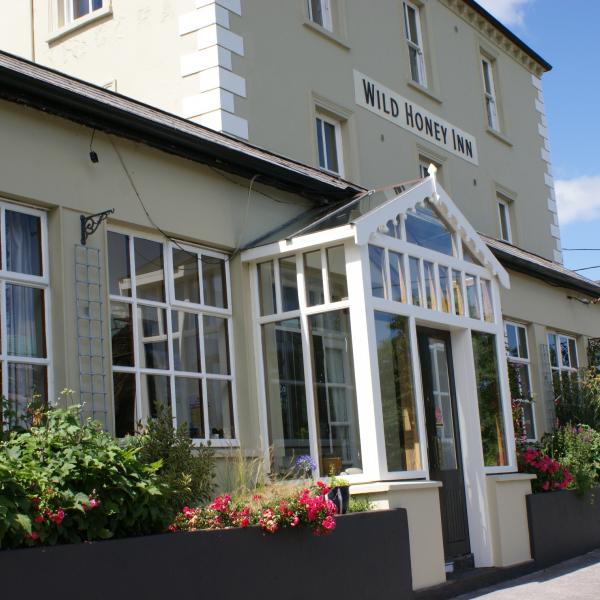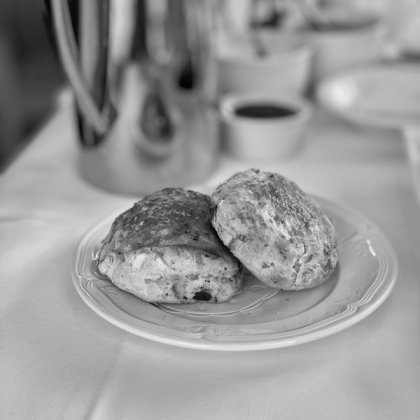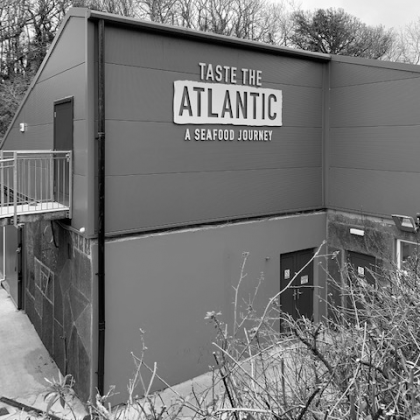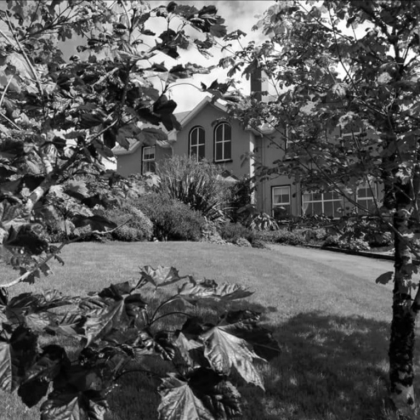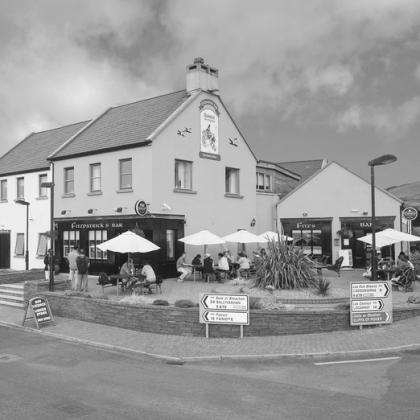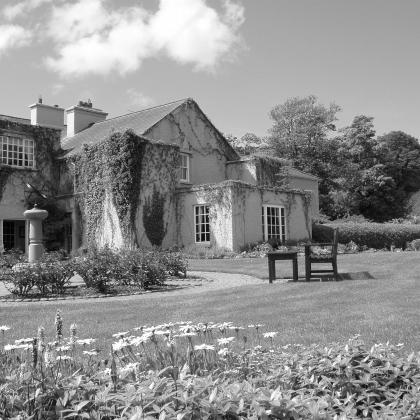Wild Honey Inn
Aidan McGrath breaks all the rules.
He does it because he has the confidence, long into his career, that a fortunate few acquire, and which critics conveniently call Late Style.
We think of Late Style when we discuss the late-career work of celebrated artists, writers and composers – Goya; Beethoven; Matisse; Richard Strauss. But more attention should be paid to Late Style amongst cooks, especially cooks like Mr McGrath, who manage to create something new that alludes to their early days in grand hotel kitchens – duck and foie gras terrine; lobster and crab pressé with salad a la Russe – whilst also acknowledging the informal and non-canonical dishes that characterise today’s cooking – braised lamb neck with goat’s curd; smoked eel with beetroot; pork cheeks with beech mushrooms.
Aidan McGrath cooks these dishes as if they share a heritage, but the heritage they share is entirely his: his journey; his hours in the kitchen; his decade and more in The Wild Honey Inn, which he transformed from a modest early-Victorian rooming house and pub into a stellar West Coast culinary superstar.
The cooking at the Wild Honey serves in one way as a platform, where students of cuisine can experience this synthesis of the old and new; the classical and the local; the formal and the informal. In his cooking Aidan McGrath displays the great truth of art and cooking: to break the rules, you must first know all the rules.
That's why eating in the Wild Honey Inn is one of the great delights, an example of the Late Style of a chef who understands Richard Olney’s mantra: ‘Without rules, improvisation is impossible – and that is what cooking is all about.’

